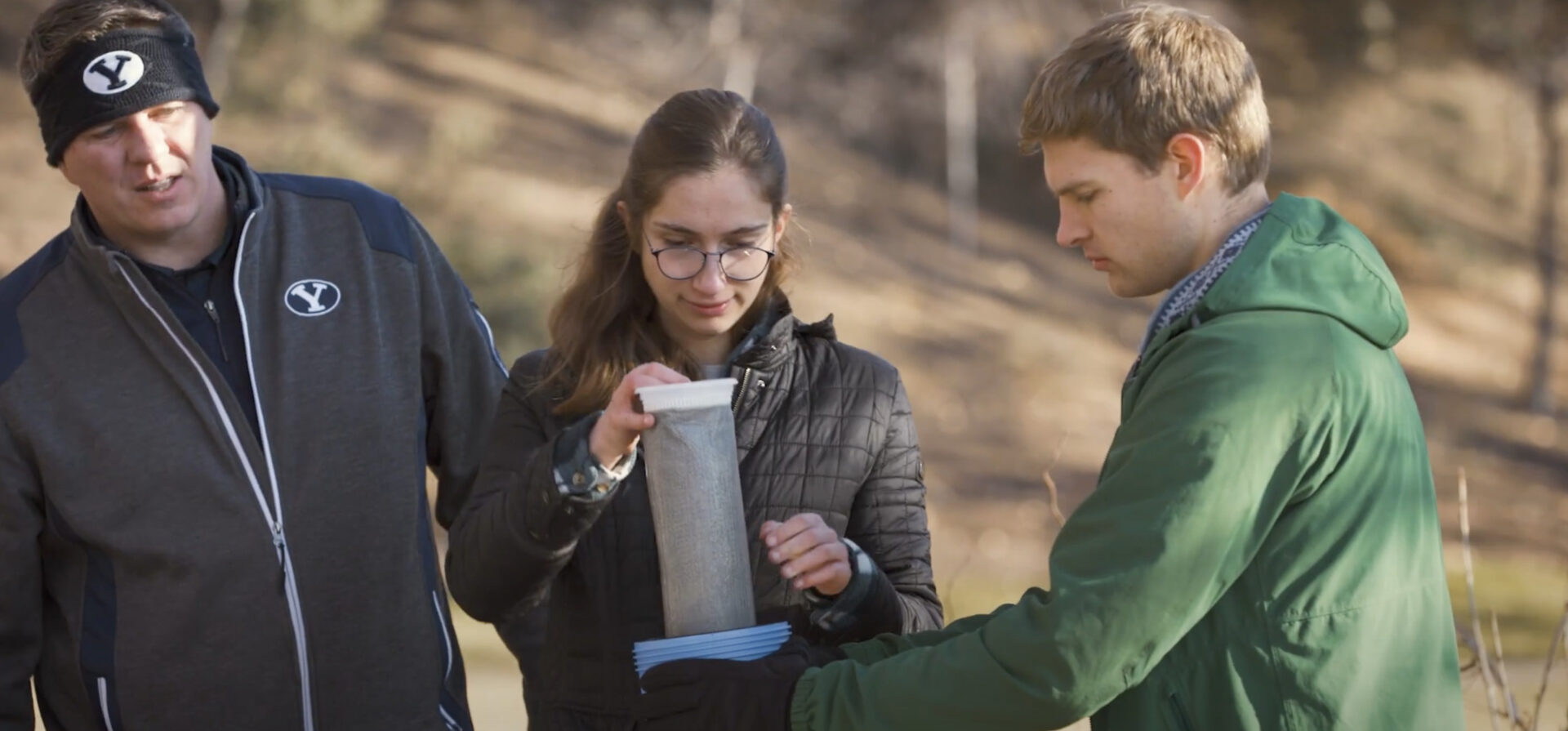Ira A. Fulton College of Engineering

Engineering students at BYU designed a prototype for an affordable, easy-to-use water filtration device with the goal of building it in Pakistan, where a good portion of water is contaminated.
“In talking to government leaders about the highest humanitarian priorities, leader after leader identified clean water as a very significant priority for the country,” said Peter F. Meurs, General Authority Seventy for The Church of Jesus Christ of Latter-day Saints and the lead managers for the water filtration project.
Using affordable components and with the help and coordination of leaders of The Church of Jesus Christ of Latter-day Saints, the BYU team designed a device to filter water. The students tested the prototype at the BYU Botany Pond, where there are plenty of microorganisms and other living things to filter out.
The treated sample came back wit no signs of harmful bacteria.
“Because of the groundwork the students did, we were able to move the project forward more than a year,” Elder Meurs said. “I don’t think it would be possible to make that much progress without the help of the capstone team.”
College of Life Sciences

Recently graduated neuroscience student Calvin Smith is part of the Edwards Neuroplasticity Lab and has been researching the negative effects of drug addiction and how it affects people’s personalities and mental health.
“In high school, some of the friends I hung out with ended up getting into drugs, which included marijuana and other substances,” Smith said. “Most of them were okay, but I had two friends that developed severe reactions over time. One of them developed borderline schizophrenia, or schizoid personality disorder. He’s still a great guy and really smart, but the addictions have drastically changed his life.”
Smith has been working at the Edwards lab since 2019 and has been involved in other addiction-related projects. His last one focuses on the effects of THC, the physical component of marijuana, on the brain’s reward center in adolescent and adult mice.
“Part of the reason I wanted to be in this lab was to just have a stab at the research and try to understand what’s really going on with THC, exactly how does it change the brain’s physiology? And what does that mean for people who use it?,” Smith said. “While I do think there are some helpful medicinal purposes for marijuana and THC, I think we should also understand the risks of addiction.”
Thanks to his research, Smith received a College Undergraduate Research Award, a grant-like award which provides funding to students involved in mentored research. He has committed to attend the Frank Netter School of Medicine in the fall and hopes to become an academically-focused physician.




